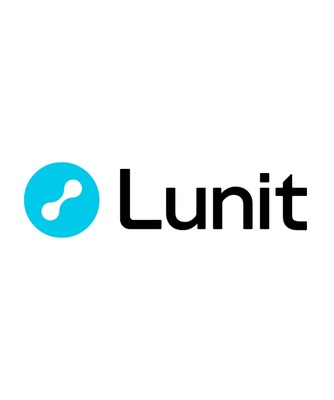Lunit (KRX:328130.KQ), in partnership with leading precision oncology company Guardant Health, today announced the integration of its AI-based PD-L1 scoring algorithm into Guardant’s testing workflow to enhance biomarker detection in the Guardant360 TissueNextTM PD-L1 test for non-small cell lung cancer (NSCLC).
SEOUL, South Korea, Jan. 31, 2023 /PRNewswire/ -- Lunit (KRX:328130.KQ), in partnership with leading precision oncology company Guardant Health, today announced the integration of its AI-based PD-L1 scoring algorithm into Guardant's testing workflow to enhance biomarker detection in the Guardant360 TissueNextTM PD-L1 test for non-small cell lung cancer (NSCLC). The newly integrated algorithm will enable Guardant to offer augmented biomarker assessment for NSCLC patients through AI-based quantification of tissue samples using a scoring system generated by Lunit SCOPE PD-L1. The enhanced Guardant test is designed to support pathologists in diagnosing PD-L1 status with higher accuracy and efficiency. Through the AI software, the test showed improved detection of PD-L1 by more than 20 percent compared to manual pathologist interpretation in the most challenging cases in NSCLC1. Lunit SCOPE PD-L1 is a CE-marked AI solution for detecting and analyzing PD-L1, a cancer biomarker. The solution may assist pathologists by minimizing interpretation discrepancy and allowing better prediction of treatment outcomes for non-small cell lung cancer (NSCLC) patients, as demonstrated in study findings published in the European Journal of Cancer. Lunit SCOPE PD-L1's integration with the Guardant360 TissueNext PD-L1 test is the first application in Guardant Galaxy, Guardant Health's suite of technology applications developed internally and through outside partnerships to enhance the performance and utility of its portfolio of cancer tests. The two companies have been in partnership since 2021, following a strategic investment from Guardant Health to Lunit. "We are honored to partner with Guardant Health in leveraging the power of AI and digital pathology to enhance the capabilities of their comprehensive genomic profiling tests for cancer patients," said Brandon Suh, CEO of Lunit. "The development of the AI-supported scoring algorithm for the Guardant360 TissueNext PD-L1 test is a great example of using advanced medical image analytics to enhance precision diagnostics in lung cancer and help doctors find the right treatment for the right patients." "With Guardant Galaxy, we are now accessing the most advanced AI techniques and the latest complementary technologies from leading companies in cancer diagnostics to enhance the capabilities of our tests and provide oncologists and researchers with precise and actionable information," said Helmy Eltoukhy, co-CEO of Guardant Health. "The digital pathology solution from Lunit has already demonstrated the power of AI to help improve detection of PD-L1 in certain cases of non-small cell lung cancer. We believe it has the potential to contribute much more broadly to advances in identifying cancer biomarkers and informing treatment decisions." About Lunit With AI, Lunit aims to 'conquer cancer,' one of the leading causes of death worldwide. Lunit is an AI software company devoted to developing AI solutions for precision diagnostics and therapeutics, to find the right diagnosis at the right cost, and the right treatment for the right patients. Lunit, a portmanteau of 'learning unit,' is a deep learning-based medical AI company devoted to developing advanced medical image analytics and data-driven imaging biomarkers via cutting-edge technology. Founded in 2013, Lunit has been acknowledged around the world for its advanced, state-of-the-art technology and its application in medical images. Its technology has been recognized at international AI competitions surpassing top companies like Google, IBM, and Microsoft. As a medical AI company with a focus on clinical evidence, the company's findings are presented in major peer-reviewed journals such as the Journal of Clinical Oncology and JAMA Network Open, and global conferences including ASCO and AACR. After receiving FDA clearance and the CE Mark, Lunit INSIGHT CXR and MMG are clinically used in approximately 1,000 hospitals and medical institutions across more than 40 countries. Lunit is headquartered in Seoul, South Korea with offices and representatives around the world. The tests described have been developed and their performance characteristics determined by the CLIA-certified laboratory performing the test. Lunit SCOPE PD-L1 is CE marked in Europe and has not been cleared or approved by the US Food and Drug Administration (FDA). Although FDA is exercising enforcement discretion of premarket review and other regulations for laboratory-developed tests in the US, certification of the laboratory is required under CLIA to ensure the quality and validity of the tests. About Guardant Health Guardant Health is a leading precision oncology company focused on helping conquer cancer globally through use of its proprietary tests, vast data sets and advanced analytics. The Guardant Health oncology platform leverages capabilities to drive commercial adoption, improve patient clinical outcomes and lower healthcare costs across all stages of the cancer care continuum. Guardant Health has commercially launched Guardant360®, Guardant360 CDx, Guardant360 TissueNext™, Guardant360 Response™, and GuardantNFINITY® tests for advanced stage cancer, and Guardant Reveal™ for early-stage cancer. The Guardant Health screening portfolio, including the ShieldTM test, aims to address the needs of individuals eligible for cancer screening. References 1. Sangjoon Choi et al. Artificial intelligence–powered programmed death ligand 1 analyser reduces interobserver variation in tumour proportion score for non–small cell lung cancer with better prediction of immunotherapy response, European Journal of Cancer 2022, Volume 170, 17-26
SOURCE Lunit |
||
Company Codes: Korea:328130 |

